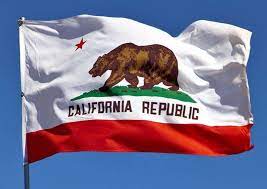
Forty of California’s fifty-eight counties use Dominion voting machines to manage their election counts. The other eighteen, presumably, use similar machines. The California Secretary of State, as the chief elections officer for the state, “tests and approves all voting equipment for security, accuracy, reliability and accessibility in order to ensure that every vote is counted as it was cast…” and “…certifies election results, educates California citizens about their voting rights, and promotes voter registration and participation.” This is from the California Secretary of State website.
As I understand it, California will be using the same equipment and procedures for the upcoming recall election in September as it uses in regularly scheduled elections. At first I thought all the votes were to be hand counted. Then I heard it would be done through the regular process.
In the neighboring state of Arizona, one of their counties is undergoing an election audit. Maricopa County also uses the Dominion machines. The state senate, which commissioned the audit, wants to complete the audit by inspecting the voting machines and routers that could have been used to illegally connect the machines to the Internet before, during and after the voting and counting process. Data from the routers would reveal if the Dominion machines had been illegally accessed.
The Maricopa County Board of Supervisors does not want to turn over the routers and passwords to the senate auditors. They site possible security risks – that producing the equipment could expose “confidential data belonging to Maricopa County citizens” or make law enforcement’s communications’ infrastructure “extremely vulnerable to hackers.” [cbsnews.com 8/4/21]
Dominion said Federal Regulations allow it to provide its security keys and confidential passwords only to “authorized recipients” that are “specifically approved by the U.S. Election Assistance Commission” and that complying with the subpoena “would cause grave harm.” [cbsnews.com 8/4/21]
So both the Supervisors and Dominion are refusing to comply with the senate’s demands. However, others say that the U.S. Constitution gives each state sovereignty over its elections and, therefore, the senate’s order is justified.
But that’s an issue for a different state. Or, is it? Hence, California’s quandary.
What if, after the election and the winner is declared, there is a serious call for an audit like the one now ongoing in Arizona? What would our Secretary of State do?
If the relationship the California Secretary of State and counties have with Dominion (and other election equipment providers) is the same as what Maricopa County has with Dominion, would the Secretary hold that the U.S. Election Assistance Commission requirements supersedes state law?
Or would the Secretary assert that California, under the U.S. Constitution, has the right to the election equipment, passwords and “security information for accessing tabulating machines, network data logs, mail-ballot envelopes, certain voter registration records and any records related to alleged data breaches around the time of the election” and demand it all be handed over? [cbsnews.com 8/4/21]
Arizona’s new audit is called a “forensic audit”; if successfully completed, it would be the most thorough election audit ever conducted and would set a new standard in the field. Should Californians settle for less than that? Would they?
I don’t know. I think we should investigate.

2 thoughts on “California Quandary?”
Very nice blog post. I absolutely love this website. Keep writing!
ez1ymv